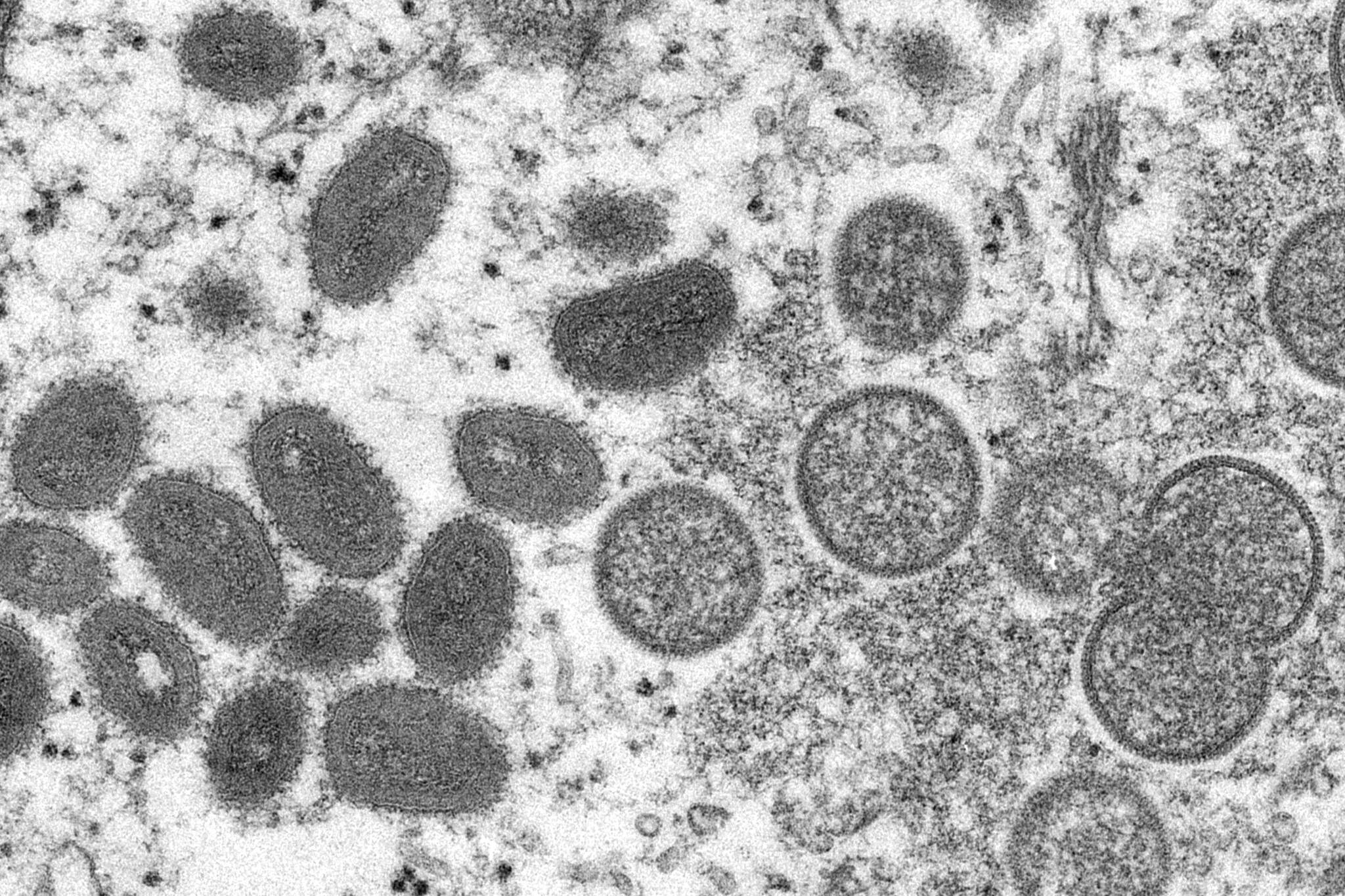This article has been updated to include
Alaska’s first case of monkeypox was identified in an Anchorage resident, according to state and Anchorage health officials.
The person did not require hospital treatment and was not reported to have been traveling, but was in close contact with someone who was said to have traveled outside of Alaska, according the Alaska Department of Health and Anchorage Health Department, which on Friday morning issued a news release announcing the case. Health officials did not share the age or gender of the person who contracted monkeypox.
“While the risk of monkeypox infection remains low for the general population, it is important for people who might be at increased risk for exposure to be aware of how to prevent transmission and what signs and symptoms to look for,” said Dr. Joe McLaughlin, state epidemiologist and chief of the Section of Epidemiology, in the news release.
Symptoms of monkeypox can include flu-like symptoms, such as fever, headache, muscle aches, chills, and fatigue that will often occur within 1 to 2 weeks of exposure, according to the state health department. Symptoms may arise before or after the rash appears, or in some cases not at all. Also, rashes, bumps, or blisters can occur on or around the genitals or in other areas such as hands, feet, chest, or face. People infected with monkeypox are typically sick for two to four weeks.
“The best thing folks can do if they’re experiencing monkeypox symptoms or come across a new, unexplained rash is to stay home and contact their health provider right away,” said Dr. Brian Piltz, medical officer at the Anchorage Health Department, in the news release. “This will allow us to deliver prompt treatment and rapid identification of close contacts who may be eligible for vaccination.”
The Alaska Section of Epidemiology is working to identify people exposed to monkeypox within Alaska, according to the health department. Any individuals confirmed as having exposure will be notified and offered the JYNNEOS vaccine. Though vaccine supply is limited, testing for monkeypox is available in Alaska. Vaccination to prevent monkeypox is not recommended for the general public at this time.
Southeast Public Health manager Sarah Hargrave said that while vaccines may currently be pre-positioned in Anchorage, if anyone within Juneau feels they fit the high-risk criteria, they can call public health and staff will be happy to assist and talk them through it.
“We are happy to take calls from anyone who might be concerned about possible exposure or has questions about monkeypox, we’re happy to take those calls at any time,” Hargrave said. “In terms of vaccination, as supplies allow, we’ll be offering vaccinations to individuals who may have had a high risk of exposure in the past 14 days or who might be in a really high-risk category, however, at this point the state of Alaska has not been allocated enough vaccines to open that up unless it’s a known exposure or someone that’s extreme high risk. If they meet the criteria and the vaccine is available, then we will help them facilitate getting that vaccine in Juneau.”
Monkeypox is not easily spread between people. Transmission occurs through either skin-to-skin contact via body fluids or monkeypox sores or through direct contact with contaminated items, as well as through prolonged face-to-face contact, according to the health department. Most cases in the current outbreak within the United States have occurred among men who have sex with men, however, anyone can get or spread the virus.
As a means of preventing the spread, it is recommended to avoid close contact with those who have recently been diagnosed with monkeypox or with people who appear to have symptoms of the virus such as characteristic rash as defined by the Centers for Disease Control and Prevention. With most methods of avoidance, it’s encouraged to wear a face mask, limit skin-to-skin contact and wash hands with soap and water or use hand sanitizer.
According to the CDC, as of July 28 there have been 46 other states to have confirmed monkeypox cases, as well as Puerto Rico and the District of Columbia.
• Contact reporter Jonson Kuhn at jonson.kuhn@juneauempire.com.

